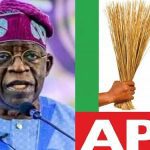The Federal Government says it has noted with interest the public conversation on the number of delegates from Nigeria attending the ongoing Climate Summit in Dubai, otherwise called COP-28, and the need to provide clarity in line with a standing pledge to conduct itself with transparency and accessibility regarding public information.
The Convention of Parties (COP) to the United Nations Framework Convention on Climate Change (UNFCCC) is the world’s pre-eminent Climate Change Conference, attended this year (COP-28) by more than 70,000 participants and delegates from over 100 countries.
Nigeria’s representation according to the Minister of Information, Mohammed Idris, is very much in line with our status as Africa’s leading Sovereign voice and player in climate action.
He explained that parties to this Convention from Nigeria include government officials, representatives from the private sector, civil society, the voluntary sector, state governments, media, multilateral institutions, representatives of marginalised communities, and many others.
According to him, It is imperative to point out that the overall Nigerian delegation to COP-28 comprises Government-sponsored (Federal and State Governments) and non-government-sponsored participants (from Private Companies, NGOs, CSOs, Media, academia, etc).
The Federal Government-funded delegation is made up of a total of 422 persons, as follows:
1. National Council on Climate Change = 32
2. Federal Ministry of Environment = 34
3. All Ministries = 167
4. Presidency = 67
5. Office of the Vice President = 9
6. National Assembly = 40
7. Federal Parastatals/Agencies = 73
As the biggest economy and most populous country in Africa, with a substantial extractive economy and extensive vulnerability to climate change, Nigeria has a significant stake in climate action, and our active and robust participation at COP is therefore not unwarranted.
COP-28 presents an array of investment and partnership opportunities for the various sectors affected by climate change, and Nigeria is already benefiting from its ongoing participation, as demonstrated by the following:
1. Nigeria and Germany signed an accelerated performance agreement to expedite the implementation of the Presidential Power Initiative (PPI) to improve Nigeria’s electricity supply. The agreement was signed by Mr. Kenny Anuwe, the Managing Director and CEO of FGN Power Company, and Ms. Nadja Haakansson, Siemens Energy’s Senior Vice President and Managing Director for Africa, at a ceremony witnessed by President Tinubu and Chancellor Scholz.
2. President Tinubu hosted a high-level meeting with stakeholders and investors on the Nigeria Carbon Market and the Electric Buses Rollout Programme on the margins of the COP28 climate summit.
a. The President unveiled the Nigeria Carbon Market Activation Plan, co-chaired by the Executive Chairman of the Federal Inland Revenue Service (FIRS), Mr. Zacch Adedeji, and the Director-General of the National Council on Climate Change (NCCC), Dr. Dahiru Salisu.
b. The Electric Buses program is only the first step in a series of innovative, clean, modern, and sustainable initiatives across diverse sectors, all aimed at simultaneously addressing climate change-related challenges, reducing carbon footprint, modernizing infrastructure systems, and positioning Nigeria as an attractive destination for global investments.
3. Nigeria stands to benefit from the Loss and Damage Fund established during COP-27 in Egypt and formally operationalized at the opening plenary of COP-28 in Dubai. The Fund will provide substantial non-debt financing to support countries most affected by the impact of climate change. Hundreds of millions of dollars have already been pledged as contributions to the Fund.
4. The President also met the President of UAE to concretize engagements between the two countries. This is aside from the bilateral talks held with several countries and multilateral partners.
It should be highlighted that, over the years, Nigeria has firmly demonstrated its climate action credentials by being the first African country to launch its Energy Transition Plan, the first African country to issue a Sovereign Green Bond, and one of the first to pass national climate change legislation.
President Tinubu has been unequivocal in his position that Africa, which is battling problems of poverty and security and struggling to provide education and healthcare to her people, cannot be told to abandon its primary source of income, which is mostly from extractive industries, without the West providing the funding and investment in alternative and clean energy sources.
Since assuming office, President Tinubu has been a vocal champion for the African continent on the global stage, whether at the United Nations General Assembly (UNGA), the G20, or the ongoing COP-28. The President has been supported by an equally active and engaged Nigerian delegation at these various fora.
It is, therefore, essential to keep setting the records straight while assuring Nigerians that President Tinubu and other officials on the Federal government delegation are in Dubai for serious business, not a jamboree.














